The following is a breakdown of key WASH guidance for COVID-19 preparedness and response to support regional and country operations in planning and resource mobilization. These are based on WHO technical guidelines and UNHCR guidance for operations and where relevant operation or site level outbreak preparedness and response plans.
Archives
Technical WASH Guidance for COVID-19 Preparedness and Response (UNHCR, 2020)
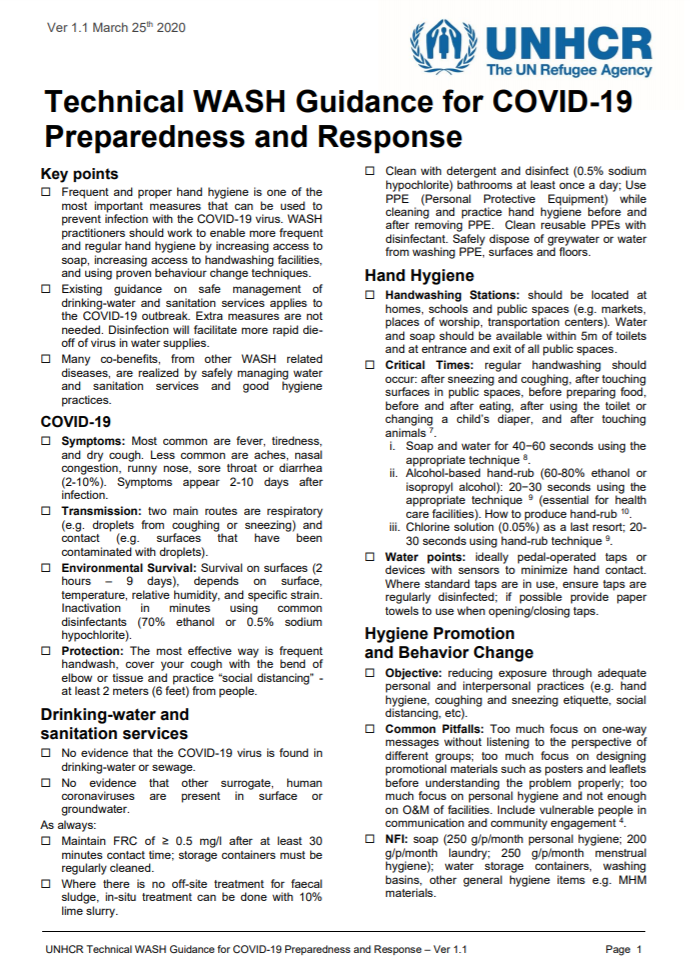
WASH in Health Care Facilities in Emergencies (WHO, 2011)
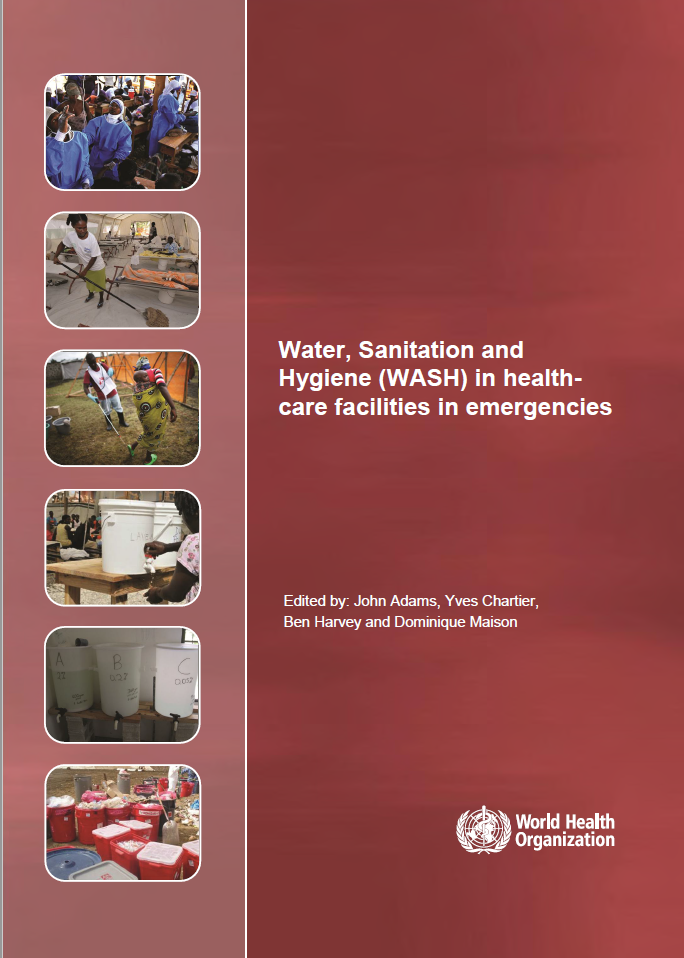
This document contains recommendations for setting minimum Water, Sanitation and Hygiene (WASH) standards in health-care facilities in emergencies in order to provide an adequate and safe level of health-care in addition to minimizing the risk of health-care facility related infection for patients, staff and carers.
- Tags: Disease Vector Control, Drainage, Medical Waste Management, Solid Waste Management, WASH in Health Care Facilities, Water Supply, and Water Supply. Organisations: WHO.
Global WASH Cluster Webinar on WASH for Preventing COVID-19
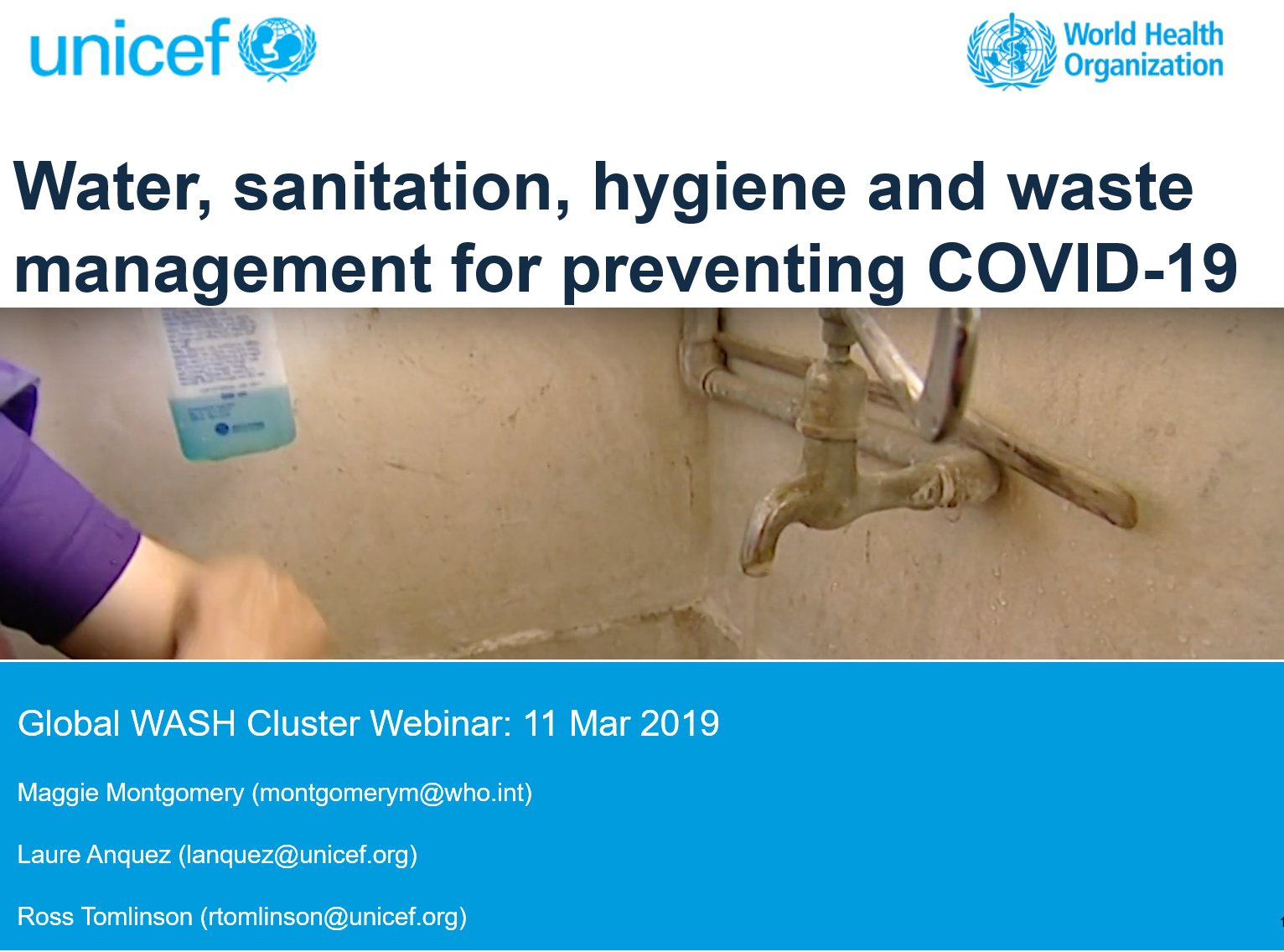
PowerPoint PPT presentation from the webinar held on 11 Mar 2020 with WASH Cluster Members providing brief overview of the COVID-19 WASH situation, WASH response, technical resources, and WASH partner updates.
- Tags: Handwashing with Soap and Handwashing with Soap. Organisations: Global WASH Cluster.
The Sphere Standards and the Coronavirus Response
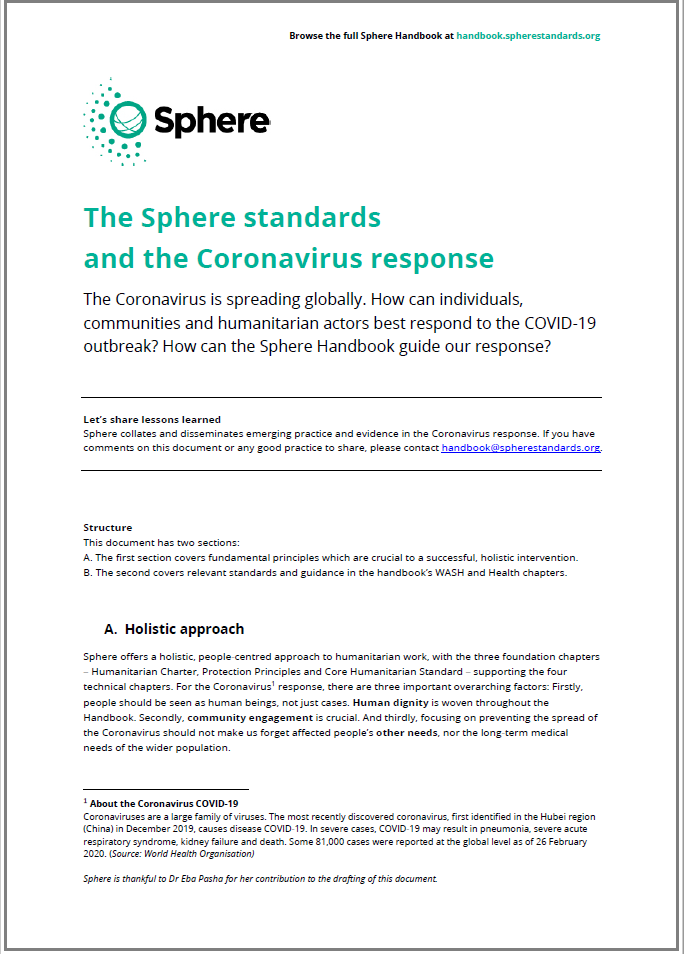
SPHERE guidance related to how humanitarian actors can best respond to the COVID-19 outbreak including fundamental principles, and relevant standards.
- Tags: Communicable Disease Control, Coronavirus, Coronavirus, Coronavirus, COVID-19, COVID-19, COVID-19, Hygiene Promotion, Hygiene Promotion, Hygiene Promotion, Hygiene Promotion, Public Health, Public Health, Public Health, and Public Health. Organisations: SPHERE. Categories: WASH Emergency Guidelines.
Institutional Survey on Menstrual Hygiene Management
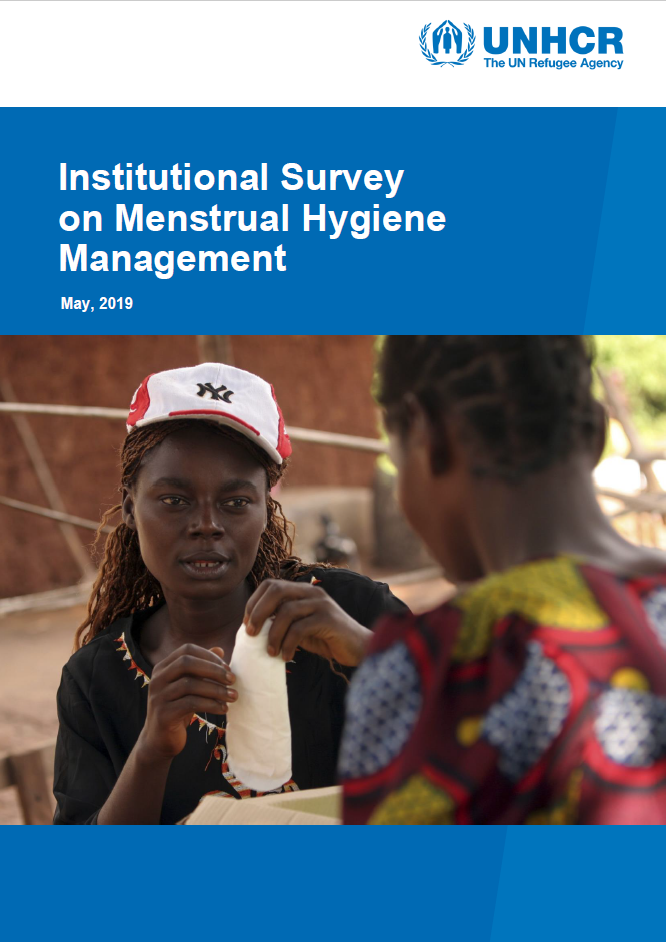
As part of the operationalization of the Age, Gender and Diversity policy, UNHCR is working to better understand how it is addressing the MHM needs of its persons of concern globally and to support country operations in planning for and responding to those needs. To facilitate this, on MHM Day 2018 the Assistant High Commissioner for Operations announced a global survey of MHM programs. This survey was circulated at the end of 2018 and the results are summarized in this document.
How to Support Survivors of GBV When a GBV Actor is Not Available in Your Area (IASC, 2015)
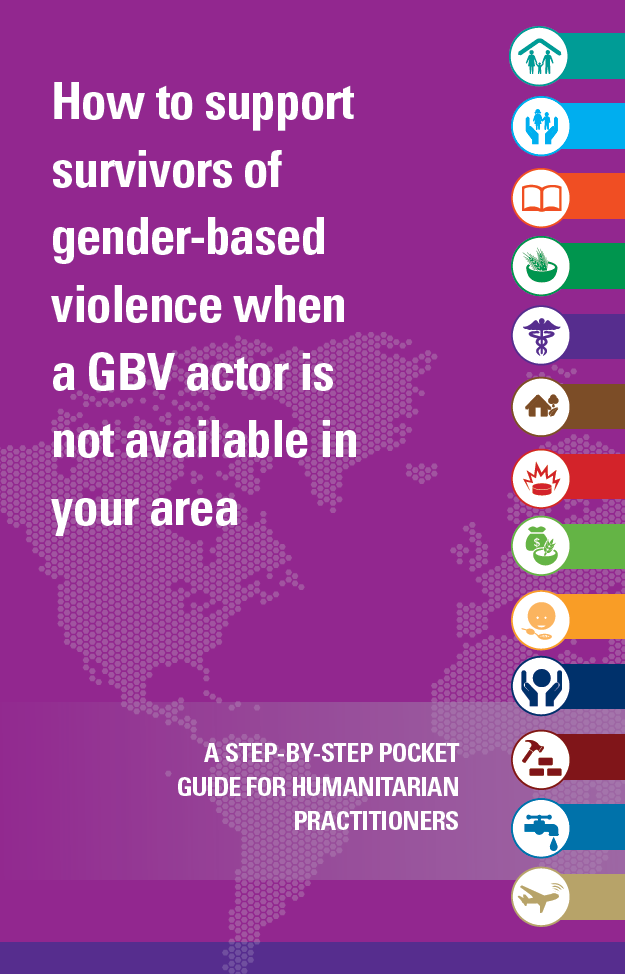
The “Pocket Guide” resource package V2.0 is a joint GBV Guidelines and GBV AoR resource designed to provide all humanitarian practitioners with concrete information on how to support a survivor of gender-based violence who disclosed to you in a context where there is no gender-based violence actor (including a referral pathway or GBV focal point) available in your area. The resource package uses global standards on providing basic support and information to survivors of GBV without doing further harm. We encourage adaptation of this resource to your local context with the support of a GBV specialist.
Guidelines for Integrating GBV Interventions in Humanitarian Action – Essential Actions (IASC, 2015)
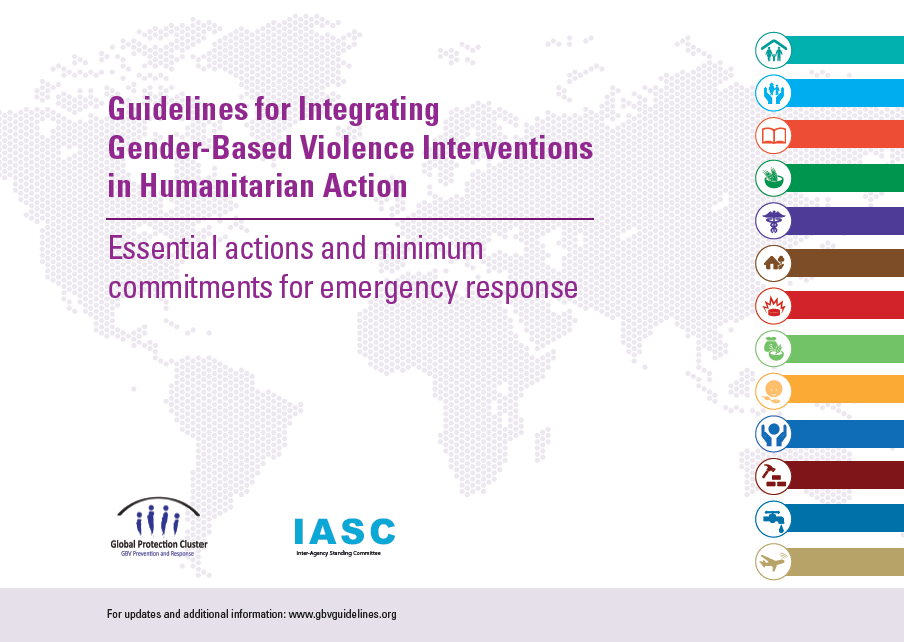
This document consolidates the “essential actions and minimum commitments” tables from the comprehensive Guidelines on Integrating Gender-based Violence Interventions in Humanitarian Action (“GBV Guidelines”) and each sector-specific Thematic Area Guide (TAG) into one document that can be easily downloaded and/or printed to use as a quick reference tool during the earliest stages of acute emergency response. It is meant to support, but not replace, the comprehensive Guidelines and sector-specific TAGs. These tables provide key recommendations for each thematic area. The sector-specific minimum commitments appear in bold.
- Categories: WASH Indicators and Standards and WASH Indicators and Standards.
Guidelines for Integrating GBV Interventions in Humanitarian Action – WASH Thematic Guide (IASC, 2015)

This Thematic Area Guide (TAG) on WASH and gender-based violence is a portable tool that provides practical guidance for WASH professionals working to prevent and mitigate gender based violence in humanitarian settings.
- Tags: Cross Cutting, Cross Cutting, Cross Cutting, Cross Cutting, Cross Cutting, Cross Cutting, Gender, Gender, Gender Based Violence, Gender Based Violence, Gender Based Violence, and Human Right to Water / Sanitation. Organisations: IASC, IASC, and IASC.
WASH in Schools for Girls E-Course
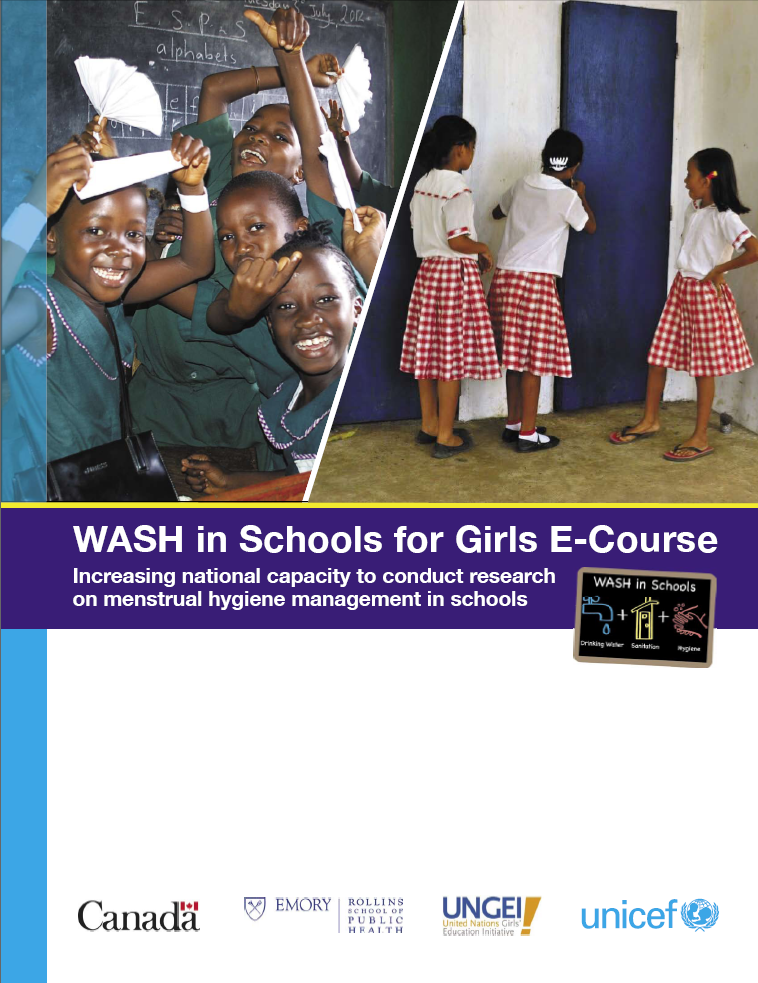
This publication provides a summary of the 12 modules of the WASH in Schools for Girls E-Course developed by Emory University and UNICEF.
- Tags: Menstruation Hygiene Management and Menstruation Hygiene Management. Organisations: Emory University and UNICEF. Categories: WASH Research Documents.
Container-based Toilets with Solid Fuel Briquettes Guidelines
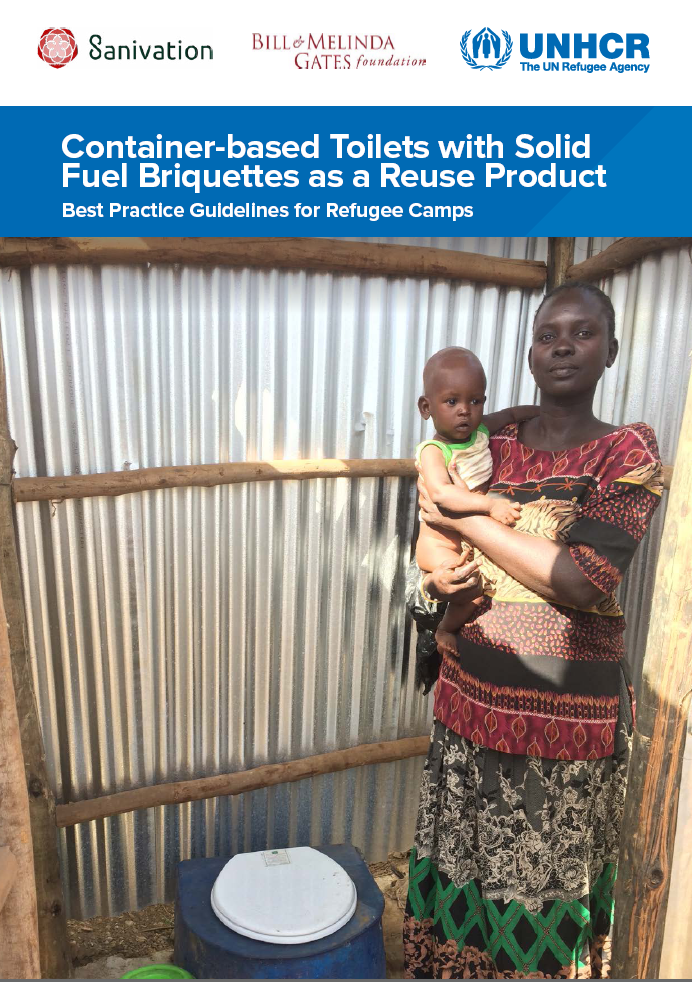
These Best Practice Guidelines were developed by Sanivation, a private sanitation company based in Kenya under UNHCR’s “Waste to Value” Project, funded by the Bill and Melinda Gates Foundation. The Guidelines are based on ongoing operational research in Kakuma Refugee Camp in partnership with UNHCR and the Norwegian Refugee Council (NRC), and will be update at the end of the Project in 2019.
- Tags: Excreta / Urine ReUse, Excreta Management, Excreta Management, Excreta Management, and Household Toilets. Languages: English, English, English, English, English, English, English, English, English, and English. Organisations: Bill and Melinda Gates Foundation, Sanivation, UNHCR, UNHCR, and UNHCR. Categories: WASH Policy Guidelines, WASH Policy Guidelines, WASH Policy Guidelines, WASH Reference Documents, WASH Reference Documents, WASH Reference Documents, WASH Reference Documents, WASH Reference Documents, and WASH Reference Documents.
